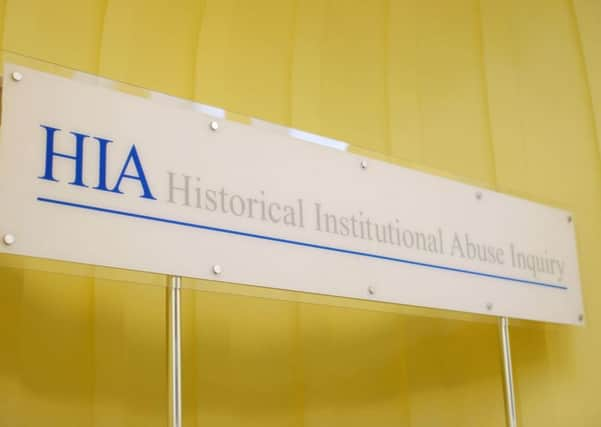Compensation should go to all child residents of institutions, report states


A basic payment should be awarded irrespective of whether they suffered harm from sexual, physical or emotional violence, a report drawn up for survivors said.
Redress would not be confined to homes covered by Sir Anthony Hart’s Historical Institutional Abuse (HIA) Inquiry, advised the report, which has been drawn up by Ulster University Professor Patricia Lundy in consultation with an expert panel on redress.
Advertisement
Hide AdAdvertisement
Hide AdA separate individual compensation scheme for residents who suffered abuse, an official apology, access to counselling and to records and a “memory project” were among other recommendations.
The Stormont Executive should accept responsibility for harm from other children or from people allowed into institutions while the children were under the care of the homes, report authors said. This would include paedophile priest Fr Brendan Smyth, who was among outsiders who visited institutions.
The report said: “To ensure that the full range of harms are redressed in this scheme, we recommend that a basic level of payment be awarded to any person who attended a residential institution, without the requirement of going through an individual assessment process to determine specific separate harms generated by acts of sexual, physical or severe emotional abuse.
“In the interests of demonstrating goodwill and compassion for survivors’ needs, such a payment could be awarded on an interim basis following an expedited procedure, especially for the elderly and the sick.”
Advertisement
Hide AdAdvertisement
Hide AdFormer judge Sir Anthony is nearing the end of hearings on abuse in religious and state-run institutions. He is due to report to the Executive by next January.
Around 500 people came forward to the HIA Inquiry or Acknowledgement Forum.
While many witnesses have given harrowing testimony of abuse of the most vulnerable children, some have paid tribute to the religious orders who cared for them. Many were elderly, their experiences dating from just after the Second World War.
The orders have apologised in some instances but also disagreed with details in some accounts.
Advertisement
Hide AdAdvertisement
Hide AdToday’s report, which has been launched at Stormont, said an individual compensation assessment scheme for those who suffered serious abuse while in residential care was a favoured alternative to civil litigation.
The document added: “It was clear that compensation was seen as only one part of a package of measures and redress should include short and long-term counselling and well being services; an official apology; access to records and family tracing; repatriation and reunion; and some form of memory project.”
It made 20 recommendations including that medical treatment and long term care for past injuries, including psychiatric care, was appropriately funded. Others included:
:: The Executive should accept liability for the physical, sexual or severe emotional abuse by a third party permitted on the premises of the institution or off the premises in circumstances where the child was or should have been under the care of the institution.”
Advertisement
Hide AdAdvertisement
Hide Ad:: Supported access to unredacted records and files that were made available, from whatever source, to the HIA Inquiry.
:: An unequivocal public apology by the state, churches and institutions, followed by a commitment to action on redress.